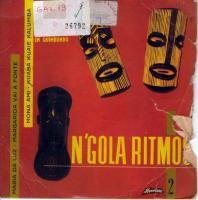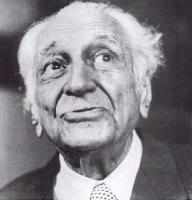lusotropicalism
Articles tagged with lusotropicalism
Tag Archive
- 25 de abril
- African cinema
- african culture
- afro cinema
- Agricultura
- Alexandra Lucas Coelho
- América Latina
- angolan fashion
- Argélia
- Ariel Bogault
- association tchiweka de documentation
- Bayreuth
- Carnival
- carnivalesque protest
- comércio
- crise
- cultural spaces
- cultural studies
- Culturgest
- ddd
- decolonizing museums
- Denise Fernandes
- departures
- Desert Travel
- design
- Djidiu- a herança do ouvido
- émancipation
- Empire
- escritor
- Feira
- feminism
- Fiction
- FMM
- forgetting
- França
- Freud
- game
- ghana
- global relations
- glotophobia
- Goa
- grime
- hip hop
- Histórias Contadas
- human rights
- humor
- identity
- imperialism
- indentity
- intellectual extractivism
- interculturalit
- Jahmek Contemporary Art
- jina mahsa amini
- Joseph Gai Ramaka
- L'Internationale
- Liberation struggles
- Lost lover
- Mamadou Soumare
- Mangueira
- matter
- Mattia Denisse
- Mimesis
- Moçâmedes
- morocco
- Nova Lisboa
- One World in Relation
- Oppressions
- paisagem
- Pancho Guedes
- Pedro Coquenão
- pensamento
- percepção
- periferias
- Política Cultural
- pos-colonial
- post-colonial contemporary art
- Postmemory
- próximo futuro
- racism
- Raoul Peck
- Remittances
- René Tavares
- representativity
- Resem Verkron
- reverse racism
- Salvador da Bahía
- slags
- social construct
- solidarity
- sondagens
- todos festival
- transatlantic slave trade
- transmission
- urban africa
- Urbanization in Africa
- viagens científicas
- video
- violencia
- Viveiros de Castro
- welket bungué
 It is undeniable that in Lisbon there is a natural approximation of Portuguese-speaking people, not Portuguese of nationality, even when they do not share the same race and culture. National differences reduce face to the discrimination which all are submitted to. And it makes full sense to think about this reduction as a need for resistance to discrimination, because the metropole turns homogeneous all the ex-colonized, grouping them in the categories of “nigger”, “black”, “immigrant”.
It is undeniable that in Lisbon there is a natural approximation of Portuguese-speaking people, not Portuguese of nationality, even when they do not share the same race and culture. National differences reduce face to the discrimination which all are submitted to. And it makes full sense to think about this reduction as a need for resistance to discrimination, because the metropole turns homogeneous all the ex-colonized, grouping them in the categories of “nigger”, “black”, “immigrant”.  Musseque residents would likely have said, “my suffering, yes, but ours as well.”
Music, in late colonial Angola took private grief and by performing it publicly made it collective. The sound, and perhaps even the process, was attractive to whites as well and in an ironic twist on the lusotropical narrative, by the early 1970s, whites made their way to the musseques in sizeable numbers to hear Ngola Ritmos and other popular bands play.
Musseque residents would likely have said, “my suffering, yes, but ours as well.”
Music, in late colonial Angola took private grief and by performing it publicly made it collective. The sound, and perhaps even the process, was attractive to whites as well and in an ironic twist on the lusotropical narrative, by the early 1970s, whites made their way to the musseques in sizeable numbers to hear Ngola Ritmos and other popular bands play.  Recent critical readings of Cape Verdean identity and intellectual history highlight the fact that Gilberto Freyre unknowingly destabilized the metanarrative of Euro-centered mestiçagem, by emphasizing instead Cape Verde’s cultural links to Africa (even if those links were impressionistically perceived by him).
Recent critical readings of Cape Verdean identity and intellectual history highlight the fact that Gilberto Freyre unknowingly destabilized the metanarrative of Euro-centered mestiçagem, by emphasizing instead Cape Verde’s cultural links to Africa (even if those links were impressionistically perceived by him). 
